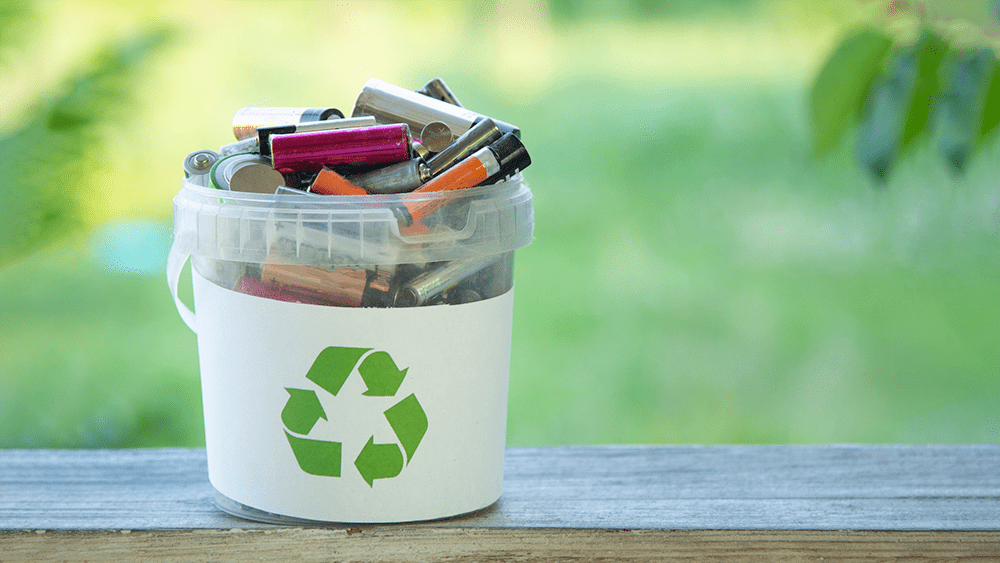April 22nd is Earth Day, a time for everyone to take action to protect the planet, and many people do this by paying more attention to recycling. How does recycling batteries make a difference for our environment?
Batteries are such an integral part of our life we sometimes forget how many of them we use, in our cell phones, laptops, keyboards, or even electric bikes. As a result, the global consumer battery market was valued at and projected to grow from USD 22.15 billion in 2021 to USD 37.07 billion by 2029 (Source: Fortune Business Insights).
That’s a staggering quantity of batteries, each containing chemicals and metals (including mercury, lithium, cadmium, or lead, depending on the type of battery) configured to generate electricity portably.
These materials may not only be harmful to the environment if they end up in a landfill (which is too often the case), but they’re also difficult and costly to extract from the earth. The increasing adoption of electrified vehicles, phones, and laptops has created a voracious demand for lithium in particular. It is projected that between 2020 and 2030, the global demand for lithium-ion batteries will increase by eleven times (Source: Statista).
In fact, resource extraction of any kind can result in soil degradation, biodiversity loss, and an increase in global warming. Therefore, the less mining activity we need, the better the environmental outcome.
This is why Call2Recycle and other recycling organizations are building a strong Canadian circular economy, focused on reusing, repairing, refurbishing, remanufacturing, repurposing, or recycling as many products and materials as possible to avoid the environmental impact of manufacturing new ones.
It is estimated that over 3 billion batteries are thrown away each year in North America (Source: Cirba Solutions). We sometimes focus on how to remedy the problems caused by battery production and disposal, but during Earth Week, it’s worth thinking about how we can prevent these problems in the first place.
When batteries are recycled responsibly, they can be made into brand new products like stainless steel appliances, golf clubs, bicycles, and more, without the need to mine new materials. So, if enough consumers got into the recycling habit, we could support a healthy circular economy around batteries and dramatically reduce the environmental and social impacts of material extraction.
A circular economy is a more sustainable production and consumption model. Raw materials are kept in production cycles longer and are repeatedly used to generate less waste. But as of last year, only 8.6% of the global economy could be described as circular (Source: RenewableMatter.eu). We can do better.
Battery technology is crucial to us, and that isn’t going to change. But what can change is our habits when those batteries reach the end of their useful life. So on Earth Day – and during the rest of the year – recycle your batteries, help support a circular economy, and help protect our planet by contributing to a more sustainable future.


